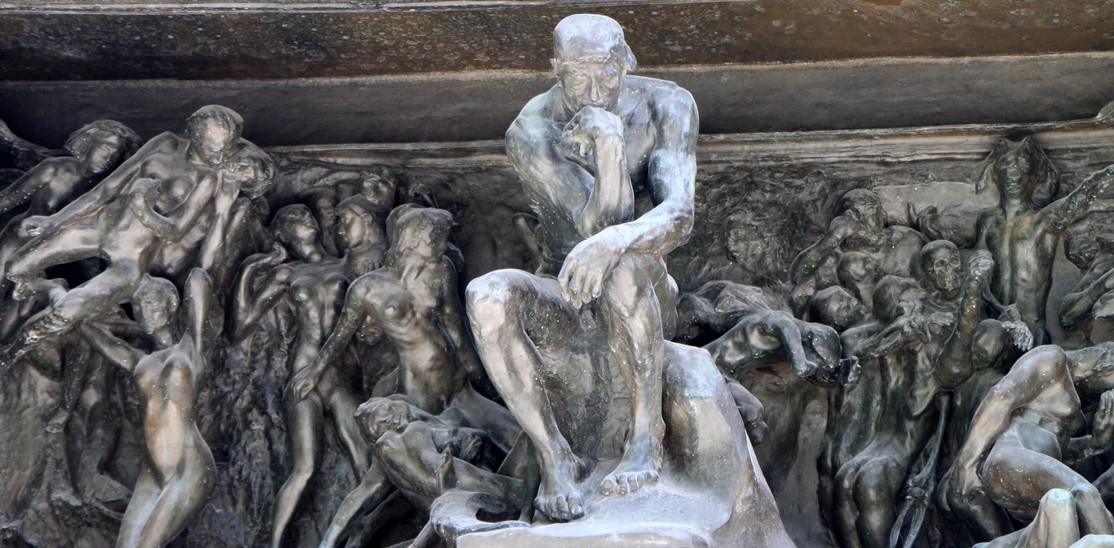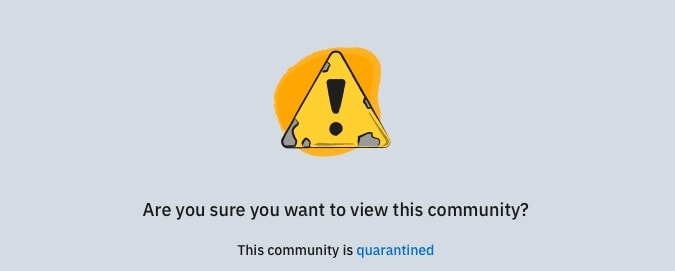American campuses have become the last place to find open debate about controversial matters.
An Open Letter on Campus Culture

Academics speak out against the threat of censorship.
The dangers of ideological groupthink in our colleges and universities have been evident for decades. It was over 30 years ago now that Allan Bloom diagnosed the pathology in The Closing of the American Mind. But as the campus Left becomes increasingly empowered, radicalized, and intolerant of other perspectives, it seemed to me that dissident thinkers in higher education would be well-served to consider specific ways to resist these trends at our universities. What follows was initially a letter to myself that articulated my rationale for resisting the campus ideologues and the means by which I would resist them. Through the drafts, it became an open letter to people in academia at large. Over the last two months, the letter has circulated online among professors, many of whom have added their names. We now have over 160 signatures from brave teachers and scholars all over the world. The undersigned speak for themselves—not their institutions. Unlike other open letters that have recently captured public attention, this one doesn’t merely voice disapproval of the ideological vision for higher education. Instead, the signers below commit to particular forms of action that might counter that vision. In short, the letter is a commitment to principled non-compliance. We invite other sympathetic academics to join the fight by adding their names. To do so, email me, Adam Ellwanger, at ellwangera@uhd.edu.
To the Administration, Faculty, and Staff of our Colleges and Universities,
As your colleagues and friends, we feel compelled to collectively express our concerns with the current climate of higher education. Over the last half-century, universities have moved steadily to the left in terms of curriculum, governance, and campus culture. In and of itself, this was not a problem. Although a balanced diversity of political orientations among the faculty is desirable, it is not necessary as long as those in the ideological majority remain resolutely committed to open inquiry, unrestricted deliberation, and freedom of speech and thought.
Over time though, we have watched with some worry as the empowered campus left gradually (but unmistakably) wavered in their commitment to those ideals. At first, the erosion of these key values was evident only in conversations in classrooms and with peers—it seemed the range of acceptable viewpoints on any given issue was shrinking, and that it was consistently the left position that was privileged, while conservative and other dissident perspectives faced increased scrutiny, skepticism, and derision. This development, alone, has weakened the university’s capacity to fulfill its function as a crucible where all ideas are tested and critiqued, by which it helps chart a reliable course for democracy.
In the last decade, the state of affairs on campus has grown increasingly dire. No longer is campus groupthink limited to academic conversation – it is enshrined and encoded in the protocols and procedures of university governance. This has meant that the penalties for any deviation from the accepted left paradigm in thought or speech now far exceed any mere conversational mockery. Rather, often at the faculty’s prodding, administrative structures now investigate and prosecute deviations from orthodoxy through formal and informal exercises of institutional power.
In 2011, the Department of Education’s “Dear Colleague” letter expanded Title IX in such a way that universities began to play a quasi-judicial role, not only in relation to accusations of sexual misconduct and discrimination, but also when it came to “objectionable” speech and behavior (in and out of the classroom) that clashed with the viewpoints of the campus Left. Other bureaucratic interventions further undermined possibilities for open inquiry at the university. For example, requiring candidates for academic positions to submit “diversity statements” with their application packets is a new way that many universities filter out potential professors whose views might not wholly conform to the progressive pieties of the academy. Such screening was already conducted via other means (such as phrasing job descriptions in such a way that candidates with expertise in sub-fields that are dominated by left traditions of thought will have an inherent advantage). The fact that the existing screening methods were deemed to be insufficient for achieving a complete ideological hegemony at the university shows how dire the prospects for viewpoint diversity on campus have become. The establishment of “safe spaces” and “free speech zones” on campus were other ways that administrators blessed the factions on campus that are least hospitable to the traditions of open inquiry and spirited debate that have defined the history of the university.
Now, in the politically polarizing context of the last 6 months, various bodies within our schools (faculty senates, student unions, university presidents and provosts, centers for critical race and gender studies, and other ideologically motivated departments and concentrations) have asserted a unilateral right to dictate the objectives, aims, and practices of our institutions. These assertions came in the form of formal resolutions and “antiracism” statements that often disregard key facts about race-related violence in law enforcement and society at large. They came in the form of workshops and sessions on “social justice,” some of which were informal, some mandatory. They came in the form of “training” on topics such as Title IX, privilege, antiracism, and “sensitivity.” All of these interactions are framed as opportunities for the sharing of diverse views, but in fact, they are explicitly and implicitly intolerant of dissenting ideas, which are routinely silenced, mocked, shouted down, or otherwise punished.
These claims to a universal right to arbitrate the dialogue on campus, coupled with the implementation of formal penalties by university administration for deviations from political orthodoxy, have silenced many faculty members who harbor strong reservations and misgivings about these aggressive demonstrations of illiberal sentiment.
Many of the faculty members who signed this letter are not household names—most of us are not “public intellectuals” of the sort that signed the recent letter in Harper’s magazine which criticized what has come to be known as “cancel culture.” That statement was welcome and needed. Most of the signatories there were luminaries from academia and beyond. In contrast, most of the undersigned are the rank and file of daily academic life: the isolated dissenters who work anonymously both to counter the current ideological zeal and evade its wrath.
Below, we specify some grievances with the current order on our campuses, and then articulate a set of resolutions by which each signatory promises to abide, insofar as each resolution is in keeping with the signer’s personal view of ethics and the good, and within the parameters of the signer’s personal disciplinary competence and ability. Our hope is that these small displays of resistance will make visible that there remains a significant contingent that values the prerogatives of free thought and free speech that serve as the necessary preconditions for open inquiry on campus.
By putting our names to this letter, we commit ourselves to forms of resistance that may come with significant professional consequences. A true dedication to diversity and toleration (academic values to which even the most aggressive campus zealots claim to adhere) calls upon our opponents not to silence us or seek to impose punishments via the levers of administrative power, but to engage with us in an ongoing, spirited debate—one premised on mutual respect and without pretense, preconditions, or censure. Some might argue that dissenting viewpoints compromise the project of social justice, and thus cannot be tolerated. We insist that competing views of what “social justice” means are a prerequisite to any serious intellectual work. We seek to create the conditions to renew that dialogue in good faith.
While the undersigned have some minor points of disagreement about the specific positions and resolutions listed below, we are in complete agreement that the phenomena discussed in this letter outline the general contours of a dangerous ideological turn in university life—one that undermines our efforts to in pursuing excellence in research, teaching, and service. Further, the rising tide of academic intolerance is a disservice to our students, many of whom are no longer taught the habits of mind that are essential for the function of democratic life in a pluralist society. We therefore commit ourselves to resisting these trends as individuals, through the implementation of the practical measures described below, in as far as they are in keeping with the conscience of each individual signer.
Positions:
- The undersigned express their opposition to so-called “safe spaces,” “free speech zones,” or any other rhetorical invention that creates a space that is cordoned off from the free and unlimited exchange of ideas. One duty of higher education is to teach students how to meaningfully, thoughtfully, and constructively engage with objectionable, offensive, or even dangerous speech. By slicing up campuses to enforce ideologically biased restrictions on speech, universities default on this duty. Students who are unwilling or unable to encounter speech they find objectionable are a threat to the health of the university and must be patiently taught the value and import of viewpoint diversity.
- The undersigned express their opposition to the Department of Education’s coercive expansion of the purview of Title IX, which was achieved by threatening the availability of federal financial aid to students at institutions that object to the new guidelines. This maneuver deprives various members of the campus community of their due process rights, forces the university to play a juridical role that it is not prepared or qualified to perform, and imperils the future of accused parties by imposing consequences for actions that are often not punishable under existing law. While we laud Secretary DeVos’s reforms in these matters, much work remains to dissolve the administrative bureaucracy that the Title IX expansion created on our campuses.
- The undersigned express their objection to efforts to create greater diversity (of race, gender, sexuality, ethnicity, nationality, or religion) on campus, when (and only when) such efforts hinder the quality of instruction, the prospects for student success, or the hiring of the best-skilled faculty.
- The undersigned express their objection to the current system of federal financial aid in which student loan debt is non-dischargeable in cases of personal bankruptcy. This system allows and encourages universities to engage in mass admission of underprepared students (many of whom already face significant economic hardship). When these students are unable to complete the degree, their student loan debt becomes a further burden in their quest for financial stability.
- The undersigned express their opposition to the use of “collegiality,” “affability,” “professionalism,” and other terms as unquantifiable metrics used in hiring, promotion, or tenure decisions. Such criteria often allow for the consideration of factors outside the traditional concerns of teaching, scholarship, and service that serve as the true measures for evaluating job performance.
- While the undersigned fully endorse the rights of groups to assemble on campus and to establish criteria for membership, we express concern at the increasing prevalence of willful segregation on campus—especially on the bases of race, class, ethnicity, gender, sexuality, religion, and nationality. More and more frequently, dorms, scholarship opportunities, campus events, study groups, recreational spaces, and student organizations are intentionally formed to fragment the campus community along the lines of identity politics. Because such segregation represents a step away from pluralism and an obstacle to the unrestricted exchange of ideas, we advocate inclusion and integration across the university.
- The undersigned express concern that the peer-review process for vetting new research prior to publication is increasingly fraught with ideological concerns and biases that are not connected to the quality or academic value of the work in question.
Resolutions:
With respect to individual differences related to disciplinary expertise and personal conscience, the undersigned make the following resolutions. We:
- Refuse to observe any spatial limitations imposed upon the free and unfettered exchange of ideas on campus. We recognize no “safe spaces.” As is the case in the public at large, everywhere on campus is a “free speech zone.”
- Refuse to abide by any “mandatory reporting” guidelines when it comes to witnessing events that may or may not be actionable under the expanded purview of Title IX or other policies that force universities to unilaterally make judgements that are rightly made by law enforcement. Instead, we will rely on our individual consciences and understanding of context in making decisions about whether to report potential violations to university authorities.
- Refuse any mandatory “training” sessions related to Title IX, “sensitivity,” anti-bias, antiracism, privilege, diversity, inclusion, “social justice,” or equity, except as deemed necessary by each signatory.
- Refuse to abide by any speech codes imposed on campus that force us to speak in ways that violate our personal consciences or beliefs.
- Refuse, when serving on any hiring committee, to consider a “diversity statement” or any other ideological litmus test as a metric for ranking candidates. When in positions of authority, we work to eliminate the requirement of such documents in application packages.
- Continue to find innovative ways to teach students about the importance of free speech and open inquiry in democracies—especially students who oppose, resist, or denigrate these ideas.
- Refuse any coercive means implemented to control the content covered in our classes, including the language of syllabi, reading lists, class discussions, examinations, or any other formal means of assessing student performance.
- Refuse to allow the withholding of merit pay to serve as a coercive tool to compromise our commitment to these resolutions.
- Commit (when serving as peer reviewers or on editorial boards) to reporting any suspected bias in the process for publishing new research to neutral parties who may be empowered to address such violations.
Respectfully Signed,
Adam Ellwanger, PhD
Professor of English
University of Houston – Downtown
** = One of the first 25 persons to sign
Charleen D. Adams, PhD, MPH
Research Fellow
Harvard School of Public Health
Ayaan Hirsi Ali
M.D. Allen, PhD
Professor of English
University of Wisconsin – Fox Valley
Randy Arrington, PhD
Visiting Professor of Political Science
Various Institutions
David J. Ayers, PhD
Professor of Sociology
Grove City College
J. Michael Bailey, PhD
Professor of Psychology
Northwestern University
Michael Ben-Gad, PhD
Professor of Economics
City, University of London
Jay Bergman, PhD
Professor of History
Central Connecticut State University
Steven Blakemore, PhD
Professor Emeritus of English
Florida Atlantic University
Walter E. Block, PhD
Harold E. Wirth Eminent Scholar, Endowed Chair and Professor of Economics
Loyola University
Daniel Bonevac, PhD
Professor of Philosophy and Human Dimensions of Organizations
The University of Texas at Austin
Loretta Breuning, PhD
Professor Emerita of Management
California State University, East Bay
Samuel V. Bruton, PhD
Professor of Philosophy, Director of the Office of Research Integrity
The University of Southern Mississippi
Chris Brown
Emeritus Professor of International Relations,
London School of Economics and Political Science
Kingsley R. Browne, JD
Professor of Law
Wayne State University Law School
F.H. Buckley
Foundation Professor
Scalia Law School
George Mason University
Gabrielle Budd, MBChB, BMedSc (Hons)
Doctoral Student
Cambridge University
Mike Burke
Lecturer
Kanda University of International Studies, Japan
Noah Carl, DPhil
Formerly Toby Jackman Newton Trust Research Fellow
(Dismissed by St. Edmund’s College, Cambridge, 2019)
Jonathan Chaves, PhD
Professor of Chinese Literature
The George Washington University
Lorraine J. Clark, PhD
Emeritus Professor, English
Trent University
Michael Clark, PhD
Economics
Hillsdale College
Daniel L. Clinciu, PhD, MSc
Assistant Professor, Researcher
National Cin-Yi University of Technology
Taichung, Taiwan
Lloyd Cohen, PhD, JD
Professor of Law
Scalia Law School
Roberto Colom, PhD
Professor of Psychology
Universidad Autónoma de Madrid
Kendall Conger, MD**
Adjunct Associate in the Department of Family Medicine and Community Health
Duke University
Paul F. Crawford, PhD
Professor of Ancient and Medieval History
California University of Pennsylvania
Aaron Cromar
Instructor Faculty
CONHI UG Non-Licensure Program
ASU Edson College of Nursing and Health Innovation
John Kyle Day, PhD
Professor of History
University of Arkansas at Monticello
Marco Del Giudice, PhD
Associate Professor of Psychology
University of New Mexico
Andrew Dines, MFA
Lecturer
Siena College
Christopher Dummitt, PhD
School for the Study of Canada
Trent University
Curtis Dunkel, PhD
Professor of Psychology
Western Illinois University
Erik P. Dutson, MD, FACS
Clinical Professor of Surgery
Chief, UCLA Section of Minimally Invasive and Bariatric Surgery
Chris Ellis, PhD**
Professor of Political Science
Bucknell University
Jack Feldman, PhD
Professor Emeritus, Psychology
Georgia Institute of Technology
Gene Fendt, PhD
Albertus Magnus Professor of Philosophy
University of Nebraska, Kearney
Edward Fernandes, PhD
Associate Professor of Psychology
Barton College
Janice Fiamengo, PhD
Professor (retired)
University of Ottawa, Canada
David Folkerts-Landau, PhD
Group Chief Economist
Global Head of Research,
Deutsche Bank, AG
Seth Forman, PhD
Managing Editor
Academic Questions
Paul Fortunato, PhD
Associate Professor of English
University of Houston – Downtown
Frank Furedi, PhD
Emeritus Professor of Sociology
University of Kent, Canterbury, UK
Jonathan Gallant
Professor Emeritus of Genome Sciences
University of Washington
James F. Gatti, PhD
Professor Emeritus, Grossman School of Business Administration
University of Vermont
Edward F. Gehringer, PhD
Professor of Computer Science
North Carolina State University
Michael George, EdD**
Professor of Mathematics
Borough of Manhattan Community College
Charles Geshekter, PhD**
Emeritus Professor, History
California State University, Chico
Caitlin Smith Gilson, PhD
Associate Professor of Philosophy
University of Holy Cross
David Gordon, PhD
Professor of Religion and Greek
Grove City College
Eric Clifford Graf, PhD
Professor of Literature
Michael Polanyi College
Universidad Francisco Marroquín
Philip E. Graves
Professor of Economics (Retired)
University of Colorado
Andrei Grigoriev, PhD
Chief Researcher, Institute of Psychology
Russian Academy of Sciences
Douglas Hainline, PhD
Lecturer
University of London
J.D. Haltigan, PhD
Assistant Professor of Psychiatry
University of Toronto
Bryan Hardman, EdS**
Doctoral Student, Adult Education
Auburn University
David Millard Haskell, PhD
Associate Professor, Liberal Arts
Wilfrid Laurier University
David R. Henderson
Research Fellow, Hoover Institution
Stanford University
Stephen Hicks, PhD
Professor of Philosophy
Executive Director, Center for Ethics and Entrepreneurship
Rockford University
Vladimir Hinich
Professor, Mathematics
University of Haifa
Joseph J. Horton, PhD
Professor of Psychology
Grove City College
Carol Iannone, PhD
Editor
Academic Questions
Miren Ivankovic, PhD
Professor of Economics
Anderson University
Bradley A. Janey, PhD
Professor of Counselor Education
Marywood University
Rob Jenkins, PhD
Associate Professor of English
Georgia State University – Perimeter College
Cameron Johnson, PhD
Adjunct Professor, Computer Engineering
Texas A&M – Commerce
Lee Jones, DPhil
Reader in International Politics
School of Politics & International Relations
Queen Mary University of London
Paul J. Joseph, MA
Associate Professor of Mass Communication
Methodist University
Rex E. Jung, PhD
Assistant Professor of Neurosurgery
University of New Mexico
Patanjali Kambhampati
Associate Professor of Chemistry
McGill University
Satoshi Kanazawa, PhD
Reader, Department of Management
London School of Economics and Political Science
Eric Kaufmann, PhD
Professor of Politics
Birkbeck College, University of London, UK
Douglas King, PhD
Professor of English
Gannon University
Robion Kirby, PhD
Emeritus Professor of Mathematics
University of California – Berkeley
Katja Kirsche
Research Coordinator,
Leipzig University, Germany
Aryeh Kontorovich, PhD
Associate Professor of Computer Science
Ben-Gurion University, Israel
Vladimir Kontorovich, PhD **
Professor of Economics
Haverford College
Nikolai Kovalev, LLM, PhD
Barrister and Solicitor (Ontario)
Associate Professor of Criminology
Wilfrid Laurier University
Marcel Kuntz, PhD
Research director at the National Centre for Scientific Research
Grenoble, France
Jon M. Kurie, MD**
Professor of Oncology
M.D. Anderson Cancer Center
Doris L. Lambert
Master of Music- Vocal Performance
Adjunct Instructor of Music
Cameron University
Julien Lapointe, PhD
Film and Moving Image Studies
Independent Scholar
Michael Ledeen, PhD
Freedom Scholar
Foundation for Defense of Democracies
James J. Lee, PhD
Associate Professor of Psychology
University of Minnesota – Twin Cities
George C. Leef, JD**
Director of Research
James G. Martin Center for Academic Renewal
Seth Leibsohn, JD
Senior Fellow
The Claremont Institute
Anany Levitin, PhD
Professor of Computing Sciences
Villanova University
Andrew Lilley, PhD
Associate Professor of Jazz Studies
University of Cape Town
Thomas Lindsay, PhD
Former Deputy Chairman
National Endowment for the Humanities
Robert L. Livingston
Member of Congress (Retired)
Representative of Louisiana
Kathleen Lowrey, PhD
Associate Professor of Anthropology
University of Alberta
Richard G. Lucarelli, DO, FAAFP
Medical Group of the Carolinas-Family Medicine-Duncan
Richard Lynn MA, PhD
Formerly Professor Emeritus
(Dismissed by University of Ulster, 2018)
Kevin MacDonald, PhD
Professor Emeritus of Psychology
California State University – Long Beach
Sumantra Maitra
Doctoral Candidate
Non-Resident Fellow
James G. Martin Center for Academic Renewal
Leonid Makar-Limanov
Professor
Wayne State University
Robert I. Mann, LdM
Instructor of Humanities
Lorenzo de’Medici Institute, Florence, Italy
Joseph H. Manson, PhD
Professor of Anthropology
University of California, Los Angeles
Joel Margolis, PhD
Assistant Professor of Political Science
(Formerly of Camden University)
Calvin Luther Martin, PhD
Professor of History (Retired)
Rutgers University
Chris Martin, PhD
Postdoctoral Fellow
Georgia Institute of Technology
Olivier Massin, PhD
Professor of Philosophy
University of Neuchâtel, Switzerland
Kevin S. Masters, PhD
Professor of Psychology
University of Colorado Denver
Ken Masugi, PhD
Lecturer in Politics
Ashbrook Center, Ashland University, OH
John McAdams, PhD**
Associate Professor
Marquette University
Luke J McEvoy, MAT
Graduate Assistant
University of New Orleans
William McNally, PhD
Professor
Lazaridis School of Business and Economics
Wilfrid Laurier University
Ari Meerson, PhD
Biochemistry
MIGAL – Galilee Research Institute
Tel Hai Academic College
Baruch Meerson, PhD**
Professor of Physics
Hebrew University of Jerusalem, Israel
Rick Mehta, PhD
Formerly Associate Professor of Psychology
(Dismissed by Acadia University, 2018)
Gerhard Meisenberg, PhD
Formerly Professor of Biochemistry
(Dismissed by Ross University School of Medicine, 2018)
Anna Melnikov, PhD
Associate Professor of Mathematics
University of Haifa
John Merrifield, PhD
Professor of Economics
University of Texas – San Antonio
Stephanie Meyer, PhD**
Senior Research Associate
Department of Bioengineering
University of Colorado – Denver
Barbara D. Miller, PhD
Associate Professor of Spanish Emerita
SUNY Buffalo State
Geoffrey Miller, PhD**
Associate Professor of Psychology
University of New Mexico
Lynne Washbourne Miller, MA
Instructor of English (Retired)
Cameron University
Michael E. Mills, PhD
Associate Professor of Psychology
Loyola Marymount University
James E. Moore, II, PhD
Professor of Engineering
Director, Transportation Engineering Program
University of Southern California
Jeffrey Morris, PhD
Assistant Professor of Biology
University of Alabama at Birmingham
David B. Mumford, PhD
University Professor Emeritus, Brown University
Higgins Professor Emeritus, Harvard University
Member, National Academy of Science
Recipient, National Medal of Science
Ana Munk, PhD
Associate Professor of Art History
University of Zagreb
Charles Negy, PhD
Associate Professor of Psychology
University of Central Florida
Terry L. Newman, MA
Sociology & Media Studies
Concordia University
D.L. Noorlander, PhD**
Associate Professor of History
State University of New York – Oneonta
Helmuth Nyborg, DPhil
Formerly Professor of Psychology
(Relieved of Duties by Aarhus University, Denmark, 2006)
James Orr, PhD**
University Lecturer in Philosophy of Religion
University of Cambridge
Klaus Ostermann, PhD**
Professor, Programming Languages
University of Tuebingen, Germany
Spiro Pantazatos, PhD
Assistant Professor of Clinical Neurobiology
Columbia University, Irvine Medical Center
David Partenheimer, PhD
Professor of English
Truman State University
Natalia Partenheimer, MA
Lecturer in English
Truman State University
Lee W. Payne, PhD
Associate Professor of Political Science
Stephen F. Austin State University
Duke Pesta, PhD**
Associate Professor of English
University of Wisconsin – Oshkosh
David Pfenninger, PhD
Department of Psychiatry (Retired)
Indiana University School of Medicine
Jeffrey J. Poelvoorde, PhD
Associate Professor of Politics
Converse College
Ivan Pongracic, PhD
Professor of Economics
Hillsdale College
Julie Ann Ponzi
Fellow, Claremont Institute
Senior Editor, American Greatness
David B. Porter, DPhil
Professor of Psychology and General Studies
(Dismissed by Berea College, 2018 – Case Pending)
Michael Potts, PhD
Professor of Philosophy
Methodist University
Aaron Preston, PhD
Professor of Philosophy
Valparaiso University
Paul A. Rahe, PhD
Charles O. Lee and Louise K. Lee Chair in the Western Heritage
Professor of History
Hillsdale College
David Rainbow, PhD
Instructional Assistant Professor
University of Houston
Michael Rainsborough, PhD
Professor of Strategic Theory
King’s College
Jay Raskin, PhD
Adjunct Instructor of Philosophy
Valencia College
Leif Rasmussen**
Doctoral Student, Computer Science
Northwestern University
Jon Reisman, MA
Associate Professor of Economics and Public Policy
University of Maine at Machias
David Richardson, MA
History Instructor
Madera Community College
Marilyn L. Robideaux, MS
Instructor, Speech Department (Retired)
Cameron University
Jenna A. Robinson, PhD
President
The James G. Martin Center for Academic Renewal
Lisa L. Rochefort, MS
Doctoral Candidate
Nova Southeastern University
David Rompilla, Jr., MA**
Doctoral Student in Human Development and Social Policy
Northwestern University
Erik Root, PhD
Professor of Political Science
Liberty University
Gad Saad, PhD
Professor of Marketing
Concordia University
Abhishek Saha
Reader in Mathematics
School of Mathematical Sciences
Queen Mary University of London
Arthur Sakamoto, PhD
Cornerstone Faculty Fellow, Professor of Sociology
Texas A&M University
Philip Carl Salzman, PhD
Emeritus Professor of Anthropology
McGill University
Brad Sealy, MA, MS
Senior Associate Professor of English
Columbia Basin College
Darlene Sebalj, PhD
Faculty of Education
University of Canberra, Australia
Alan Silberberg, PhD**
Professor of Psychology
American University
Aaron Slepkov, PhD
Associate Professor of Physics & Astronomy
Canada Research Chair in the Physics of Biomaterials
Trent University
Richard L. Sparks, EdD
Professor Emeritus
Mt. St. Joseph University
John Staddon, PhD**
James B. Duke Professor Department of Psychology and Neuroscience
Duke University
Keith E. Stanovich, PhD**
Emeritus Professor of Applied Psychology and Human Development
University of Toronto
Paula J. Stanovich, PhD
Professor Emerita
Portland State University
Charles N. Steele, PhD
Associate Professor and Herman and Suzanne Dettwiler Chair in Economics
Chairman, Dept. Economics, Business, and Accounting
Hillsdale College
Richard Stith, JD, PhD
Senior Research Professor of Law
Valparaiso University
Doug Stokes
Professor
Exeter university, UK
David Sullivan, PhD
Professor of Philosophy
Metropolitan State University of Denver
Michael P. “Doc” Sweeney, PhD
McCabe/U.P.S. Endowed Chair
Professor and Director of Accounting
Hillsdale College
Steve Taaffe, PhD
Professor of History
Stephen F. Austin State University
Elida M. Testai, MD, MA, MBA
Adjunct Instructor
Rio Salado College
Michail Theodosiadis, PhD
Goldsmiths, University of London
Politics and International Relations
Paul A. Thompson, PhD, PSTAT(R)
Professor of Medical Education
University of South Dakota
Edward A Tiryakian, PhD
Professor of Sociology
Duke University
Josefina C. Tiryakian, PhD
Senior Coordinator Programs
Duke University
Paul Towlson**
Doctoral Candidate in Philosophy
University of Buckingham
Ronald L. Trowbridge, PhD
Policy Fellow at the Independent Institute
Oakland, California
Nathan Truex, MD
PGY-3 Resident
University of Utah
Jonathan VanGeest, PhD
Professor, Health Policy and Management
College of Public Health
Kent State University
Samuel Veissière, PhD
Assistant Professor of Psychiatry
Co-director, Culture, Mind, and Brain Program
McGill University
Julian Vigo, PhD, FRSA**
(Formerly of Goldsmiths, University of London)
Russell T. Warne, PhD
Associate Professor of Psychology
Utah Valley University
Blake Karl Winter, PhD **
Assistant Professor in Mathematics
Medaille College
Steven E. Woodworth, PhD
Texas Christian University
Joshua D. Wright, PhD
Assistant Professor of Psychology
St. Joseph’s College
Jon Zubieta, PhD**
Distinguished Professor, Chemistry
Syracuse University
The American Mind presents a range of perspectives. Views are writers’ own and do not necessarily represent those of The Claremont Institute.
The American Mind is a publication of the Claremont Institute, a non-profit 501(c)(3) organization, dedicated to restoring the principles of the American Founding to their rightful, preeminent authority in our national life. Interested in supporting our work? Gifts to the Claremont Institute are tax-deductible.
Competing visions of the purpose of free speech.
Our silence made Charlie Kirk a target.
The case of Reddit shows how bad it’s gotten.
Shutting down dissenting speech only serves to strengthen its appeal.
Modern ideologues are fundamentally at odds with the nation as a political entity.






